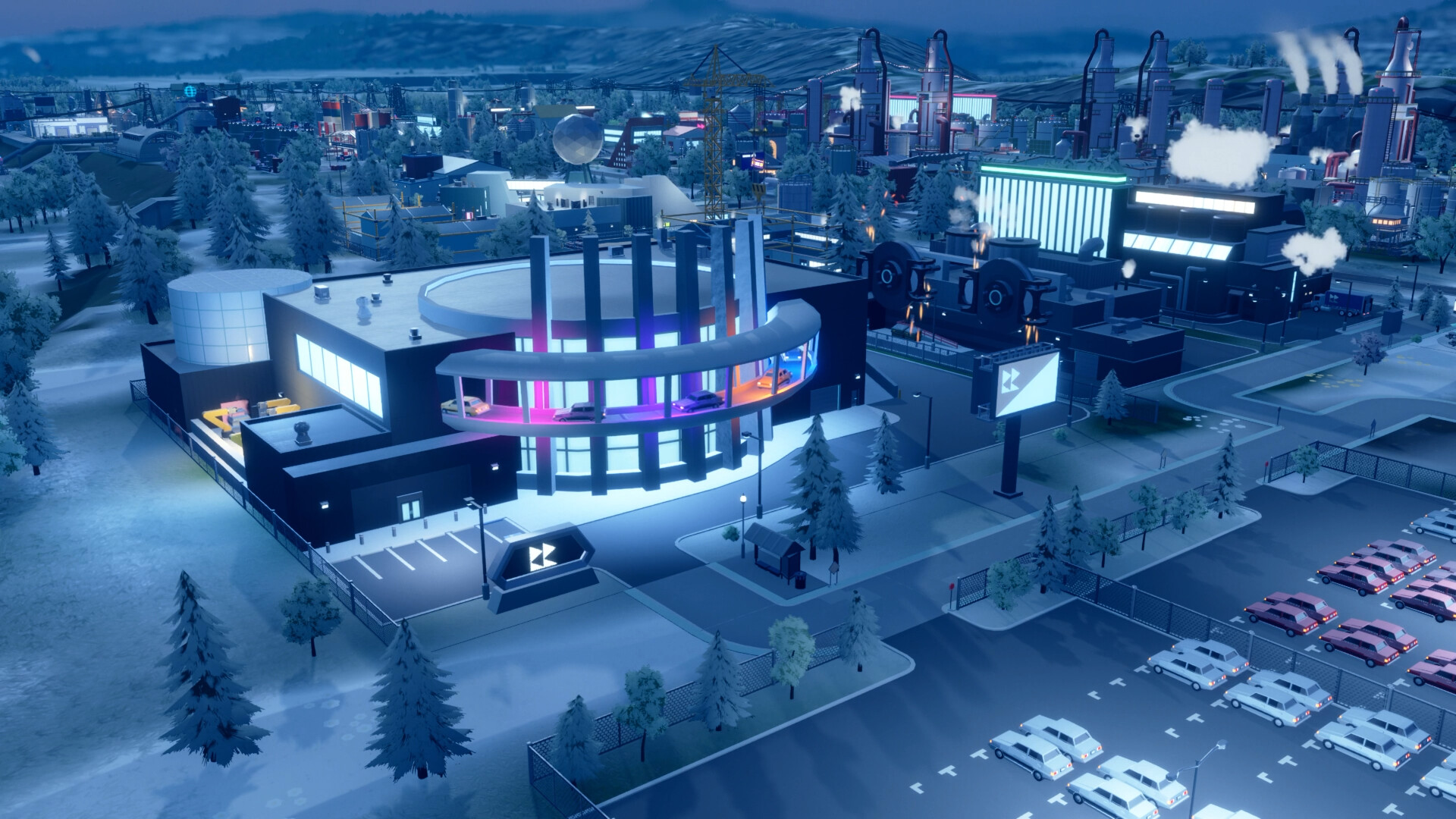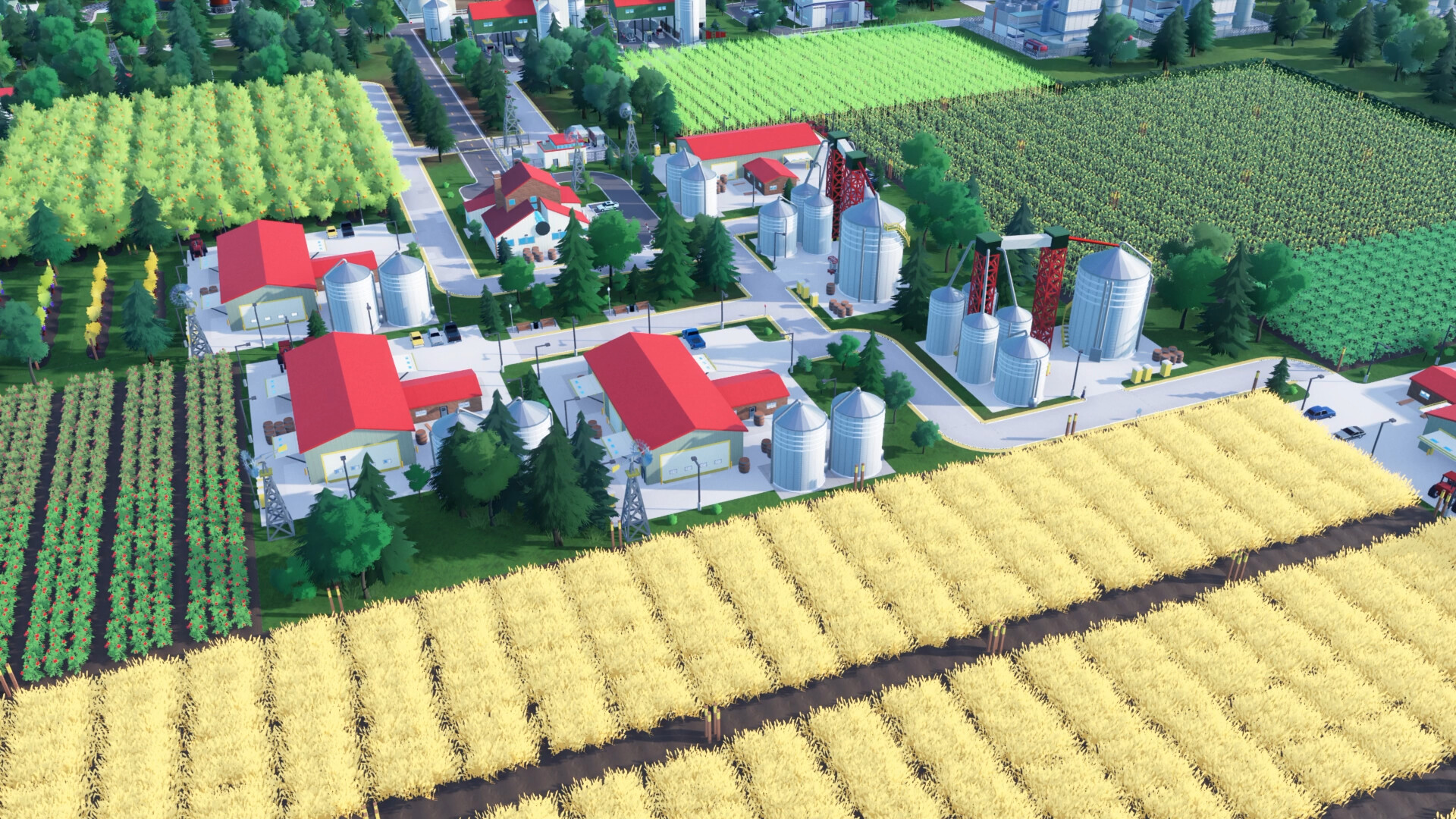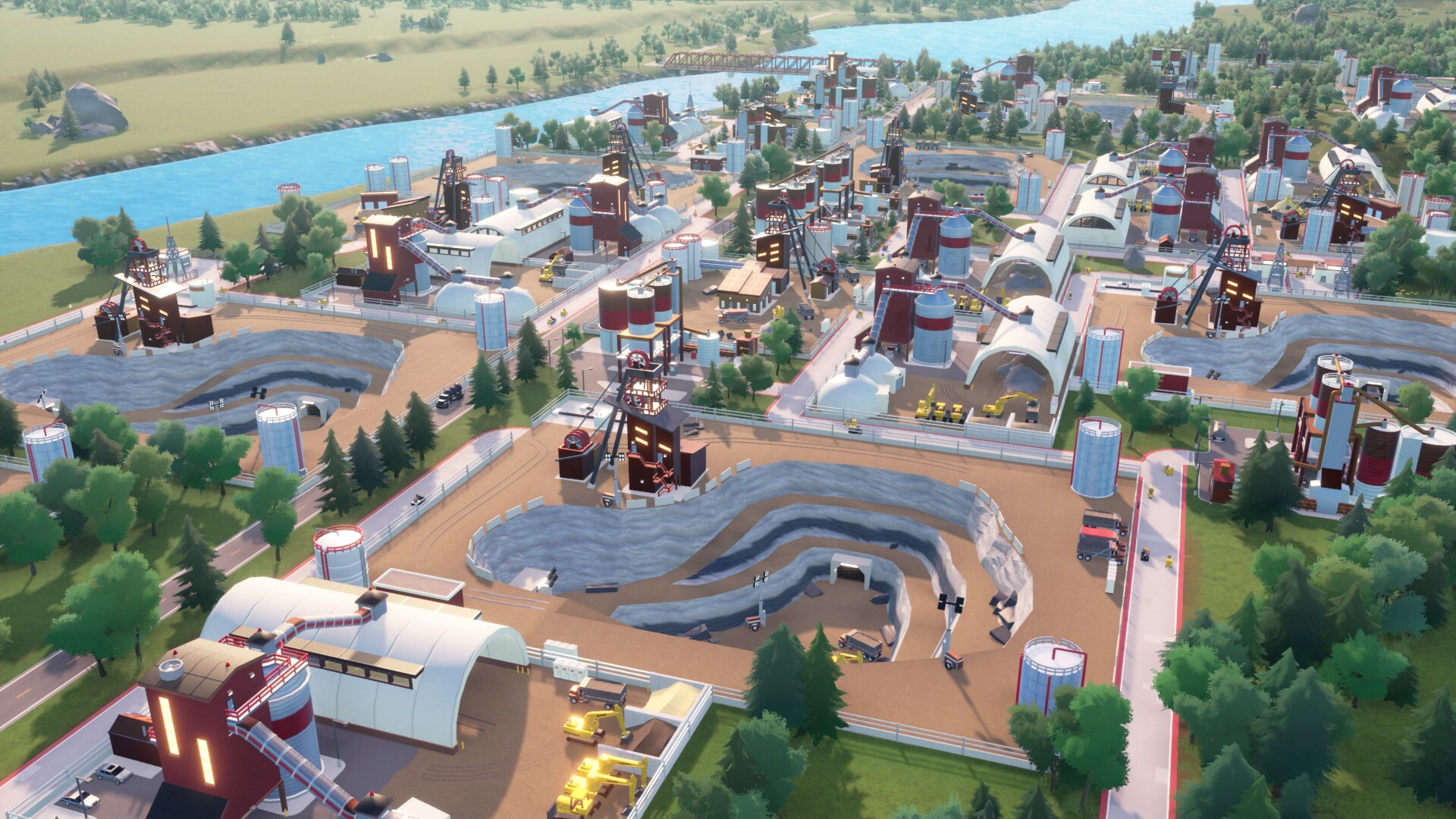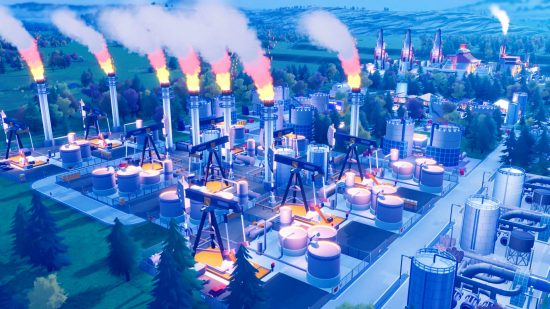It’s just a little thing, but in Cities Skylines 2, I miss connecting the water and electrical supplies. Making the whole thing automated is a smart move, game design wise. It frees you up to focus on the bigger picture, and removes some of the busywork when it comes to building streets and infrastructure. But there’s something satisfying about that low-level, granular construction work. Performance problems and, more recently, criticisms regarding the official Cities Skylines 2 mod support have dogged Colossal Order’s sequel since it launched. If you were looking for an alternative, a new city builder and industrial strategy game, which PCGamesN got to see and discuss exclusively at GDC, could be what you need.
Rise of Industry 2 is both huge and tiny at the same time. A strategy game of enormous scale, where you found, cultivate, and oversee a range of production lines and businesses, it also has a keen focus on the minutiae – the little details of city and industry building that make these experiences so gratifying.
You don’t just choose a product and start earning. You need to negotiate with an investor, who will offer some startup capital in return for certain dividends and payouts. After that, you’ll choose from one of 15 maps, all of which have some historical basis to the US (Cleveland for example is primed for steel manufacturing) and have to purchase some land. Again, this requires some negotiation and, potentially, sneaky business acumen. If you scope a plot of land that has oil, but the owner doesn’t know, you can buy it from under them for a cut rate.

From there, everything needs to be built and managed with a keen eye. You don’t pick a prefab factory and drop it where you like. You build your production chain piece by piece, adding administration offices, the equipment required for harvesting raw materials, processing plants, storage centers, and a distribution network.
If you can’t afford the basic stuff like minerals and chemicals right from the start, you can negotiate to buy it from a third party. Likewise, you can hire executives who have address books of various contacts, and may be able to talk contractors down price wise. Maybe you need a line on a good, reliable source of cheap bauxite. Hire a VP with contacts in those industries, and they can bring their business buddies into your fold.
And it goes further. Those initial investors will have targets for you to meet, and if you miss them, you’ll face penalties and lose money. As you build your business empire, the city around you will start to grow and change as well. Expand too quickly, and the mayor will be on your back asking you to pay for more houses for your new workers, or maybe make a donation towards a new park or bus route. Dodge the pollution laws, and the Environmental Protection Agency will come calling. They’ll want you to change this and that, but you can also ignore them if you want. You can even go for lunches and play golf with other executives, to try and develop your relationships.

At the beginning of the game, you’re trying to raise series A funding and get off the ground. From there, you hustle for series B and series C funding, before eventually launching an initial public offering and putting your business on the stock market. After that, you can cash out and use the money to start up somewhere – and something – new.
Perhaps you want to make cars, or planes, or components for computers. Or maybe you’re feeling a bit more innocent and want to create a wholesome candy company. Alternatively, you can just dabble in the raw materials and make a living selling them to other businesses. Everything is customizable. Everything is granular. If you want the city building game experience combined with enormous detail and generous scope, Rise of Industry 2 is ideal. Nevertheless, a lot of attention has been given to balancing the simulation.
“We want the player to feel like they’re doing what the CEO would be doing,” Matthew Viglione, co-founder of developer SomaSim, tells PCGamesN at GDC. “We thought about going so far as letting you manage salaries, but the CEO wouldn’t be doing that and it got overly complicated and made the simulation needlessly complex.
“The game is like a series of ecosystems. Each area of the business is sort of like a little town, a microcosm that connects into a larger economy. If you have a town that is specialized toward making chemicals, it will also have its own internal infrastructure, its own internal needs, and that feeds up into the needs of the company, which feed back into the region as a whole.
“I think it’s like managing ecosystems on several different levels, sort of a more zoomed in management of the individual production complexes, and then a larger overview of the company. And then above that, managing the web of relationships that you have as the CEO, with other businesses, with the cities, and with the EPA.”

Set during the height of ‘80s capitalism, Rise of Industry 2 also has its own interpretation of American industry and a bygone age of mass production. At times, it’s deeply cynical and satirical. But it’s also occasionally sentimental, lamenting a long-dead romantic vision of industry whereby an entire country would be lifted up by the market.
“It is an optimistic game,” Robert Zubek, co-founder of SomaSim, explains. “It’s sort of reflecting the manufacturing heights of the American economy before a lot of manufacturing moved out of the country. So it’s optimistic in that sense, but it’s also very self cognizant of this era.”
“I was alive in the ‘80s,” Ziglione continues, “and it was like, ‘this is great.’ But there was always a little voice in the back of your head that this was probably not good for the future. So we’re trying to sort of use that sardonic tone. We had an idea that maybe giant smokestacks blowing whatever into the air weren’t good, and this is when we discovered the hole in the ozone layer. It was when that consciousness was just starting to come online.”

While we’re still waiting for the Rise of Industry 2 release date, you can already sign up to join its first playtest – just head right here.
In the meantime, you might want to try some of the other best management games, or maybe the best building games available on PC.
You can also follow us on Google News for daily PC games news, reviews, and guides, or grab our PCGN deals tracker to net yourself some bargains.
